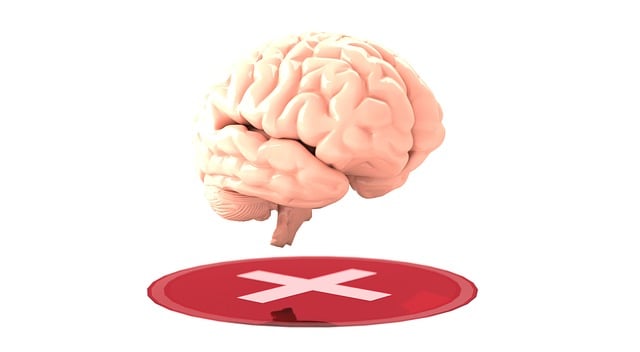Mental health policies play a pivotal role in shaping access and affordability of care, including Boulder Spiritual-Religious Issues Therapy. Integrated models blend traditional medicine with alternative therapies for holistic mental wellness management. Policies promoting active participation, self-care, and crisis intervention improve outcomes. Increasing recognition of spiritual beliefs' impact on therapy underscores the need for healthcare provider training. The policy landscape includes strengths like recognizing mental wellness as a core health component but also gaps, such as inconsistent crisis guidance and uneven coaching program effectiveness. Advocacy addressing spiritual-religious aspects can enhance emotional well-being promotion, challenge stigma, and prevent healthcare provider burnout, ensuring quality mental health care for all.
“Mental health policy analysis and advocacy are crucial aspects of ensuring equitable access to quality care. This comprehensive article explores the intricate relationship between mental health policies and their impact on care accessibility. We delve into the unique considerations surrounding spiritual-religious issues in therapy, as recognized by the growing body of research on Boulder Spiritual-Religious Issues Therapy. Additionally, it provides an analysis of current mental health policies, highlighting strengths and gaps. Effective advocacy strategies for policy reform and improved services are also discussed.”
- Understanding Mental Health Policy and Its Impact on Access to Care
- The Role of Spiritual-Religious Issues in Mental Therapy: A Comprehensive Review
- Analysis of Current Mental Health Policies: Strengths and Gaps
- Advocacy Strategies for Improving Mental Health Services and Policy Reform
Understanding Mental Health Policy and Its Impact on Access to Care

Mental health policy plays a pivotal role in shaping access to care for individuals grappling with various psychological and emotional challenges. Understanding these policies is crucial as they often determine the availability and affordability of treatment options, including Boulder Spiritual-Religious Issues Therapy. In many cases, robust mental health policies advocate for integrated care, ensuring that individuals can seamlessly access both traditional medical services and alternative therapies like spiritual or religious interventions.
This holistic approach recognizes the interconnectedness between mental wellness, spiritual well-being, and overall quality of life. For instance, a supportive policy environment might include provisions for Mental Wellness Journaling Exercise Guidance, Crisis Intervention Guidance, and Self-Care Practices, all of which empower individuals to take an active role in managing their mental health. Such policies not only improve access but also foster a culture where seeking help is normalized, leading to better outcomes for those navigating the complexities of their psychological landscapes.
The Role of Spiritual-Religious Issues in Mental Therapy: A Comprehensive Review

In recent years, there has been a growing recognition of the significant role that spiritual-religious issues play in mental therapy. The integration of Boulder Spiritual-Religious Issues Therapy into traditional healthcare practices is gaining traction, as it offers a holistic approach to addressing the complex needs of individuals struggling with mental health challenges. This comprehensive review explores how spiritual beliefs and religious practices can serve as powerful tools for anxiety relief, among other mental health concerns. By examining various therapeutic modalities that incorporate spiritual dimensions, this analysis highlights the importance of healthcare provider cultural competency training in ensuring effective treatment tailored to diverse patient populations.
The interplay between spiritual-religious factors and mental well-being is not new, yet its formal integration into clinical settings has been relatively slow. Mental health awareness campaigns have increasingly emphasized the need for a multifaceted approach, recognizing that many individuals seek meaning, comfort, and guidance from their spiritual or religious beliefs during times of distress. As such, incorporating these aspects into therapy can foster deeper connections, enhanced coping mechanisms, and improved outcomes for patients, particularly those facing profound anxiety or existential crises. This review underscores the necessity of continuing to explore and refine practices that honor the spiritual dimensions of patient experiences in order to advance the field of mental health care.
Analysis of Current Mental Health Policies: Strengths and Gaps

The current landscape of mental health policies presents a complex picture with notable strengths and significant gaps that demand attention. One of the primary strengths lies in the increasing recognition of mental wellness as an integral part of overall health, leading to more inclusive healthcare systems. This shift has facilitated better access to various therapy types, including Boulder spiritual-religious issues therapy, ensuring diverse treatment options for individuals seeking support.
However, a critical gap remains in the standardization and implementation of crisis intervention guidance across different regions. While Mental Wellness Coaching Programs Development is gaining traction, their effectiveness varies due to inconsistent training and resource allocation. Empathy Building Strategies, which are essential for fostering supportive environments, often lack sufficient emphasis in policy frameworks, potentially hindering long-term recovery and patient satisfaction.
Advocacy Strategies for Improving Mental Health Services and Policy Reform

Advocacy plays a pivotal role in shaping mental health policies and driving much-needed improvements to services. Effective advocacy strategies can amplify the voices of individuals living with mental health conditions, ensuring their needs are reflected in legislation and healthcare systems. One powerful approach is to highlight the intersection between spiritual-religious issues and therapy, as these aspects significantly influence emotional well-being promotion techniques. By fostering open dialogues, advocates can challenge stigmatization and encourage integrative care that respects diverse Mind Over Matter principles.
Moreover, advocacy efforts should address burnout prevention strategies for healthcare providers, who are essential in delivering quality mental health services. Strategies may include policy reforms that prioritize provider wellness, flexible work arrangements, and access to supportive resources. Such initiatives not only benefit healthcare workers but also ensure sustained service delivery and improved patient outcomes. Ultimately, a comprehensive advocacy agenda in mental health policy reform requires a multi-faceted approach that addresses both the individual and systemic barriers to quality care.
Mental health policy analysis and advocacy are vital components in ensuring equitable access to care, especially considering the complex interplay of spiritual-religious issues in therapy. As demonstrated by this review, integrating Boulder Spiritual-Religious Issues Therapy into mental healthcare can significantly enhance patient outcomes. Despite notable strengths in current policies, gaps remain, particularly regarding cultural sensitivity and coverage for alternative therapies. Effective advocacy strategies, including policy reform and community engagement, are essential to addressing these shortcomings. By fostering an inclusive environment that recognizes the value of spiritual dimensions in mental health, we can revolutionize care delivery and improve the lives of those seeking support.














